News
-
 Health & Medicine
Health & MedicineThalidomide treats Crohn’s disease
Study of children with the inflammatory bowel disorder raises possibility of new use for tainted drug.
By Nathan Seppa -
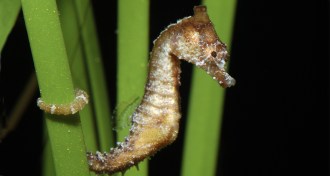 Animals
AnimalsOdd head of seahorse cloaks its sneak attacks
Head shape creates hydrodynamic fake-out for stealth hunting.
By Susan Milius -
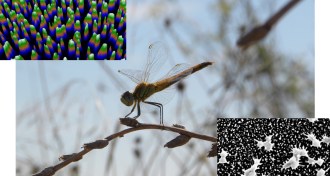 Materials Science
Materials ScienceMaterial inspired by dragonfly wings bursts bacteria
Silicon studded with nanostructures could act as antimicrobial coating on medical devices.
By Beth Mole -
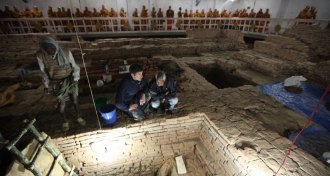 Archaeology
ArchaeologyEarly shrine unearthed at Nepal Buddhist site
Ritual structure could help pin down when the sage known as the Buddha lived in South Asia.
By Bruce Bower -
 Climate
ClimateMethane emissions may be far higher than estimated
U.S. fossil fuel and cattle industries may emit far more methane than government estimates indicate.
-
 Anthropology
AnthropologyLittle Red Riding Hood gets an evolutionary makeover
A statistical analysis attempts to track the rise of several widespread folktales.
By Bruce Bower -
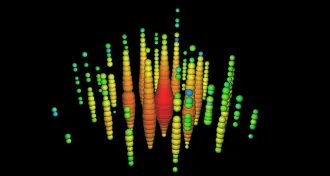 Astronomy
AstronomyHigh-energy neutrinos ensnared from beyond the solar system
Speedy particles detected in Antarctica may point to gargantuan black holes or cataclysmic explosions.
By Andrew Grant -
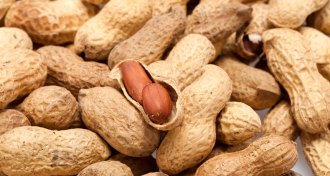 Health & Medicine
Health & MedicineEating nuts may extend a person’s life
People who regularly ate peanuts or tree nuts were less likely to die during decades-long studies.
By Nathan Seppa -
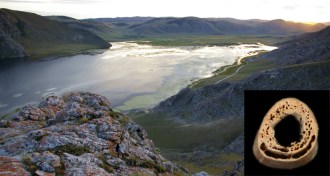 Genetics
GeneticsAncient Siberian bones clarify Native American origins
Some New World ancestors came from western Eurasia, not East Asia.
-
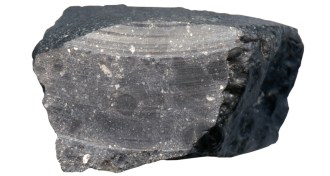 Planetary Science
Planetary ScienceAncient Martian meteorite preserves chunks of planet’s early crust
Rock could reveal what Mars was like 4.4 billion years ago.
By Andrew Grant -
 Animals
AnimalsComb jelly immune system can spot old enemies
Animal at base of family tree could help researchers understand the evolution of immunity.
By Susan Milius -
 Ecosystems
EcosystemsVirus-blocking insects taking over Vietnamese island
Field trial tests mosquitoes that may stop the spread of dengue infection.
By Beth Mole